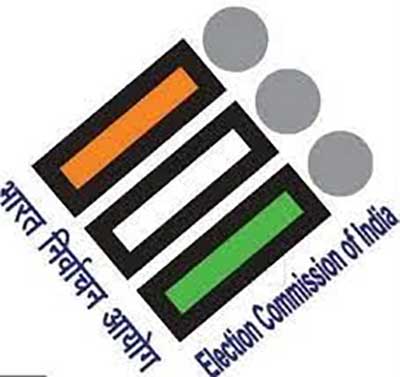Date : 11/08/2023
Relevance: GS Paper 2- Election - Appointment of Election commissioner
Keywords: Election Commissioners, Bill, Supreme Court verdict, institutional autonomy, impartiality, credibility, electoral institutions, collegium model
Context -
- In a significant move, the Chief Election Commissioner and Other Election Commissioners (Appointments, Conditions of Service, Term of Office) Bill was presented in the Rajya Sabha on the penultimate day of the Monsoon Session.
- This development follows the March verdict of the Supreme Court, which introduced reforms to the appointment process of polling officials. While the proposed Bill introduces changes that alter the Supreme Court's directives, it also incorporates positive elements that could potentially enhance the credibility and impartiality of the election commission.
A Departure from the Supreme Court Verdict
- In March, a unanimous decision by a constitution bench led by Justice KM Joseph emphasized a collegium consisting of the Prime Minister, the Leader of the Opposition, and the Chief Justice of India for appointing the Chief Election Commissioner (CEC) and Election Commissioners (ECs). The aim was to ensure the independence of the Election Commission. The bench highlighted the necessity of the Chief Justice's presence to maintain impartiality and insulate appointments from executive influence.
- The new Bill proposed by the Union government diverges from the Supreme Court's recommendation by replacing the Chief Justice with a Cabinet Minister nominated by the Prime Minister. However, it introduces a welcome addition: a search committee headed by the Cabinet Secretary, aided by two other members of high government rank, to prepare a panel of potential members for the Selection Committee's consideration.
Promoting Transparency and Integrity
- An encouraging aspect of the Bill is its stipulation that the CEC and other ECs must be selected from individuals who hold or have held positions equivalent to the rank of secretary. Additionally, they should possess integrity, knowledge, and experience in election management and conduct. This provision addresses a significant concern that previously lacked a clear solution - the risk of appointments from non-relevant domains.
- The March verdict's significance lies in its focus on combating partisanship and safeguarding institutional autonomy. The conventional selection process, driven by the President based on the Prime Minister's and Cabinet's advice, left room for perceptions of bias. The introduction of a collegium aimed to elevate the Election Commission's neutrality and independence, critical for maintaining public confidence in electoral processes.
Urgent Imperatives and Global Context
- Amidst global trends of eroding trust in electoral institutions, preserving the Election Commission's institutional autonomy becomes imperative. Reports from the Gallup World Poll reflect diminishing confidence in electoral honesty, even in countries like the USA and India.
- Recent events have sparked concerns about the EC's credibility in India, with allegations of bias and irregularities. The proposed changes aim to address these concerns and enhance the commission's standing.
- The recent reports on democracy from the V-Dem Institute shed light on the declining indicators of democracy in India, including the autonomy of the Election Commission. In the midst of these discussions, it's important to acknowledge that even the collegium model has its imperfections. The appointment of CBI directors, for example, has been carried out through the collegium, and some appointments have been marred by controversies. Doubts have been raised about the inclusion of the Chief Justice of India (CJI) in the collegium. While the CJI is undoubtedly a legal expert, their familiarity with candidates may be limited. Additionally, questions arise about their ability to impartially judge appointments when challenged in the Supreme Court.
Perfecting the Collegium Model
- While the proposed Bill offers substantial improvements, the effectiveness of the collegium model, whether derived from the Supreme Court's recommendations or the new Bill, hinges on its credibility.
- To ensure this, a unanimous verdict within the collegium could bolster its legitimacy. Such a requirement could enhance public perception and further insulate appointments from undue influence.
Conclusion
The presented Bill represents a complex interplay between safeguarding institutional autonomy and balancing diverse perspectives. By incorporating positive elements from the Supreme Court's verdict and introducing additional reforms, the government aims to reinforce the Election Commission's role as a beacon of democracy. The critical challenge lies in optimizing these provisions to maintain public trust and uphold the commission's integrity.
Probable Questions for UPSC Main Exam-
- How does the proposed Bill address concerns raised by the Supreme Court verdict regarding partisanship and institutional autonomy in the appointment process of the Chief Election Commissioner and Election Commissioners? (10 Marks,150 Words)
- In the context of declining public trust in electoral institutions globally, how do the proposed changes to the Election Commission's appointment process contribute to bolstering its credibility and independence in India? (15 Marks,250 Words)
Source - The India Express








